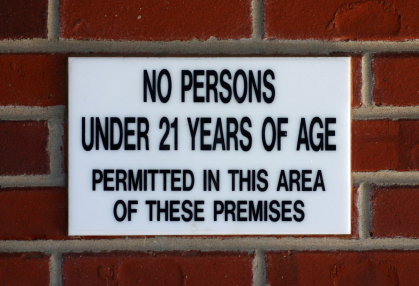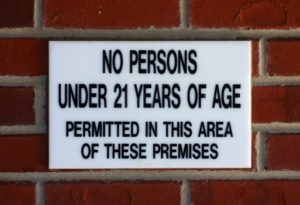Under Georgia Law, OCGA § 3-3-23, it is illegal for someone Under 21 to possess alcohol. The courts have interpreted this law very broadly and, as a result, internal possession of alcohol by someone under 21 can be a crime.
View More DUI Related Articles & Videos
The defendant having beer in his/ her blood or on the breath can be sufficient enough to be found guilty.
Even without alcohol being physically present, law enforcement will attempt to determine whether the defendant has any manifestations of consumption (odor of alcohol, blood shot eyes, slurred speech, coordination issues, etc.) Most cases have an admission of consumption by the defendant and / or a positive reading on a portable breath test (PBT).
It is almost never advisable to admit to consumption (everyone has a Constitutional Right to remain silent). Also, it is generally not advisable to consent to a portable breath test. PBT’s are unreliable for a numeric reading and are only good for a positive or a negative indication. Additionally, there are many factors that could lead to a false positive (mouth wash, bread, certain medications, etc.).
Related License Suspensions:
Generally, a standard Under 21 alcohol charge (according to the Georgia Under Age Drinking Laws) will not result in a license suspension, but the Georgia Department of Driver Services (DDS) will suspend for the following Under 21 Alcohol violations:
1. Purchasing an alcoholic beverage.
2. Misrepresenting age for purpose of illegally obtaining any alcoholic beverage.
3. Misrepresenting identity or using false identification for purpose of purchasing or obtaining any alcoholic beverage.
Legal Exceptions to Under 21 Possession:
There are a few exceptions in which a person under 21 can possess / consume alcohol without criminal liability:
1. For medical purposes pursuant to a prescription.
2. At a religious ceremony.
3. When the parent or guardian of the person under 21 years of age gives the alcoholic beverage to the person and when possession is in the home of the parent or guardian and such parent or guardian is present.
Under Age Drinking Laws – Pretrial Diversion / Conditional Discharge / First Offense:
Due to the prevalence of Under 21 Alcohol cases, the Georgia Legislature has allowed those accused of Possession of Alcohol, for the first time, to plead guilty, but latter have the charges dismissed if certain conditions are met. (This is different than a First Offender Plea.)
Generally, the terms are probation, a fine, completing an alcohol awareness class, performing community service and other terms and conditions. Please note that, legally, one is not entitled to an expungement on a conditional discharge. However, some prosecutors will agree to sign-off on an expungement as part of the plea deal.
At A. Bishop Law, Georgia Criminal Defense Attorney, Anne Bishop welcomes anyone with any minor / under 21 alcohol or criminal defense questions to Call or Email. Please remember that all criminal defense initial consultations are free of charge.
If you are facing a charge that could result in a license suspension in North Georgia or Hall County, you should consider consulting a lawyer that is knowledgeable in the field. This helps to provide that best possible defenses and make the more well informed decisions regarding your rights and options when considering how best to maintain your driver’s license and avoid suspension.
About the attorney:  Anne Bishop is a Georgia lawyer with A. Bishop Law in Gainesville, Georgia and handles various DUI / DWI, Marijuana Arrests and other Georgia Criminal Defense matters.  The law office of A. Bishop Law can assist clients throughout Georgia including: Hall County (Gainesville, Oakwood, Flowery Branch), Jackson County  (Jefferson, Braselton) White County (Helen, Cleveland), Lumpkin County (Dahlonega), Dawson County (Dawsonville), Habersham County (Demorest, Cornelia), and all of Northeast Georgia.
This article and/or video should not be considered nor relied upon as legal advice since it is only intended for general overview and informational purposes. Please consult with an attorney on your specific situation in order to determine an appropriate legal course of action.





